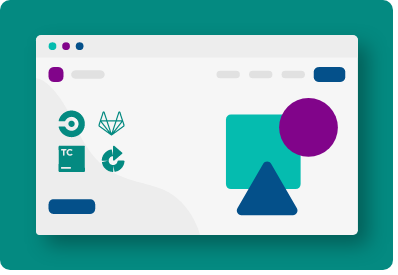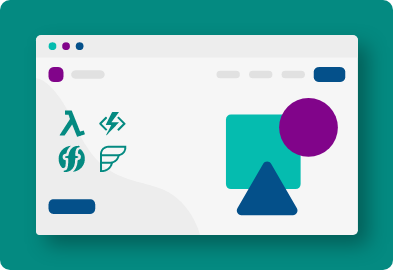Infrastructure as a Service, or IaaS, is a form of cloud computing that provides virtualized computing resources over the internet. IaaS is one of the three main categories of cloud computing services, alongside Software as a Service (SaaS) and Platform as a Service (PaaS).
In an IaaS model, a third-party provider hosts hardware, software, servers, storage, and other infrastructure components on behalf of its users. IaaS providers also offer a range of services accompanying that infrastructure, such as detailed billing, monitoring, log access, security, load balancing, and clustering.
IaaS can provide flexibility and scalability, and it has several other potential business benefits:
Platform as a Service, or PaaS, is a cloud computing model that delivers applications over the internet. In a PaaS model, a cloud provider delivers hardware and software tools to its users as a service. A PaaS provider hosts the hardware and software on its own infrastructure, freeing developers from having to install in-house hardware and software to develop or run a new application.
Why use PaaS?
Here are a few reasons why businesses might choose to use PaaS:
-

Simplified operations
With PaaS, the platform management is handled by the provider, allowing developers to focus on writing the code.
-

Faster time to market
PaaS provides a platform to deploy applications quickly, which means products can be delivered to the market faster.
-

Scalable
PaaS solutions automatically scale up and down to match the needs of your application.
Example of PaaS
An example of PaaS could be using a platform like Heroku or Google App Engine. These services provide a platform for developers to deploy and run their applications, without having to worry about the underlying infrastructure.
Let's explore some of the key IaaS and PaaS Technologies:
IaaS Technologies
-

Amazon Web Services (AWS)
This is Amazon's cloud platform, offering over 175 services from data centers globally. Services include computing power, storage options, networking, and databases.
-

Microsoft Azure
Azure is Microsoft's public cloud computing platform, providing a range of cloud services, including those for analytics, storage, and networking.
-

Google Cloud Platform (GCP)
Google's cloud platform offers services in computing, storage, and application development that run on Google hardware
-

IBM Cloud
This platform offers IaaS, PaaS, and SaaS through all its available cloud delivery models.
-

Oracle Cloud
Oracle's cloud platform offers IaaS, PaaS, SaaS, and Data as a Service (DaaS).
-

Alibaba Cloud
This is a cloud computing service of Alibaba Group, providing a comprehensive suite of global cloud computing services.
-

DigitalOcean
DigitalOcean is an American cloud infrastructure provider offering cloud services to help deploy, scale and automate modern applications.
-

Vultr
Vultr is a provider of high-performance SSD cloud servers that boasts a global footprint.
-

Linode
Linode is an American privately-owned cloud hosting company that provides virtual private servers.
-

VMware Cloud
This is a popular enterprise-grade IaaS platform that supports existing workloads as well as new application development.
PaaS Technologies
-

AWS Elastic Beanstalk
This is an orchestration service offered by Amazon Web Services for deploying applications that orchestrates various AWS services, including EC2, S3, Simple Notification Service (SNS), CloudWatch, autoscaling, and Elastic Load Balancers.
-

Google App Engine
This is a Platform as a Service and cloud computing platform for developing and hosting web applications in Google-managed data centers
-

Microsoft Azure App Services
This is a fully managed platform for building, deploying, and scaling web apps.
-

Heroku
This is a cloud platform as a service supporting several programming languages.
-

IBM Cloud Foundry
IBM's PaaS provides a highly scalable, open-source cloud platform that allows you to build, run, and manage applications.
-

Oracle Cloud Platform
This is a comprehensive, integrated suite of services that make it easy for developers to build, deploy, and manage any type of application.
-

Red Hat OpenShift
This is a family of containerization software developed by Red Hat. It's an enterprise-grade platform based on Kubernetes.
-

Engine Yard
This is a platform as a service company that allows developers to plan, deploy and grow applications.
-

Salesforce App Cloud
This is Salesforce's PaaS offering that includes a suite of services and tools to develop apps that can be instantly deployed on the Salesforce servers.
-

SAP Cloud Platform
This is an enterprise service for building, extending, and integrating applications.
In the next part of the series, we will take a deep dive into CI/CD tools and Serverless architectures. Stay tuned!























